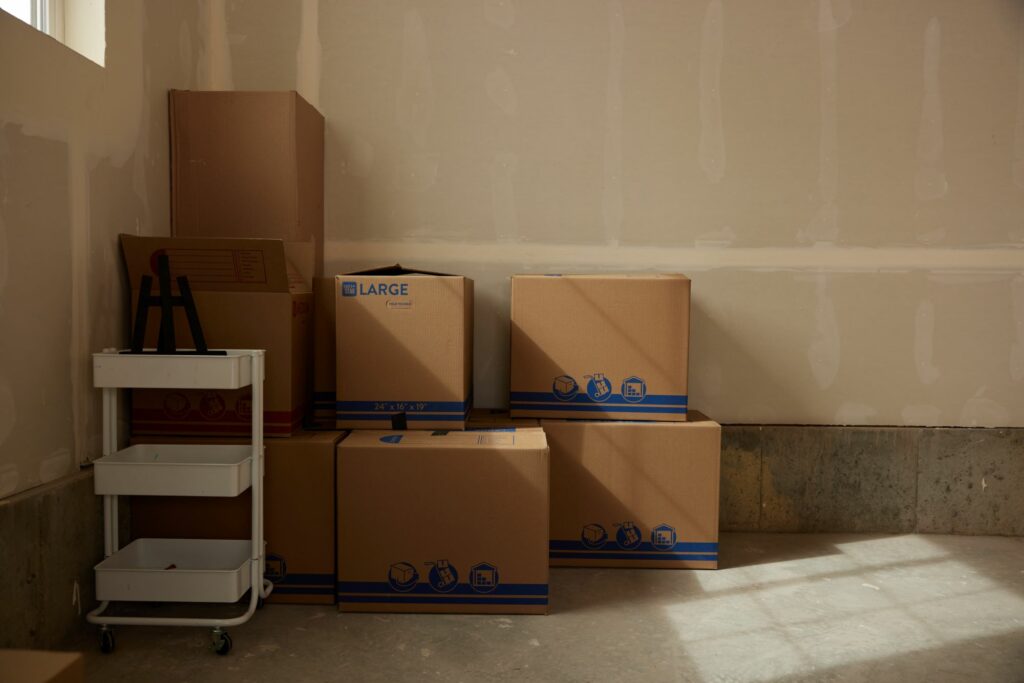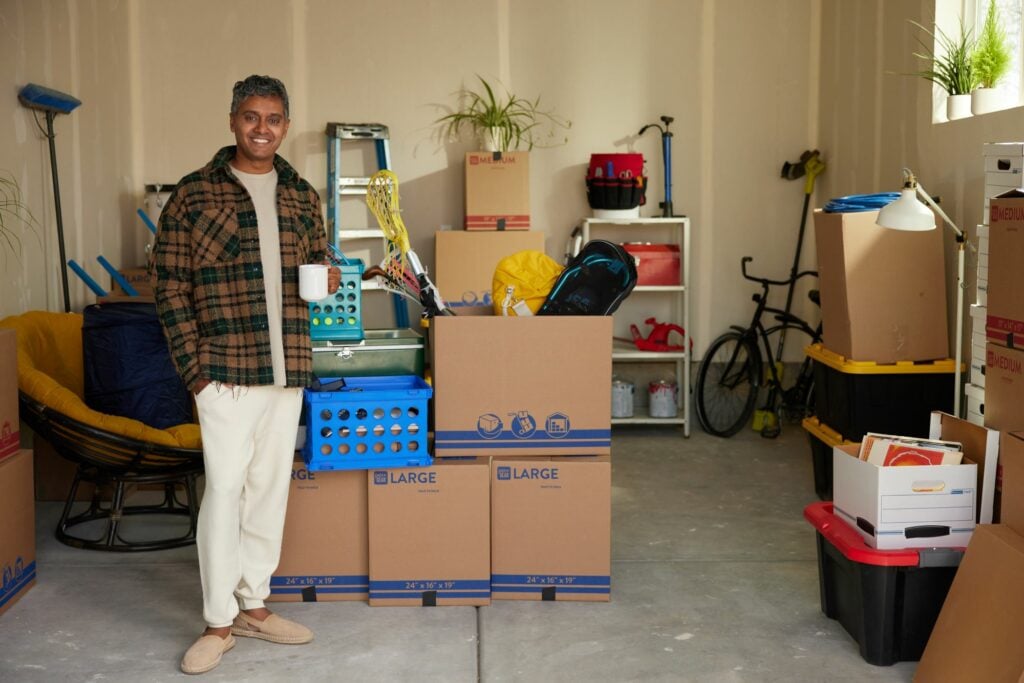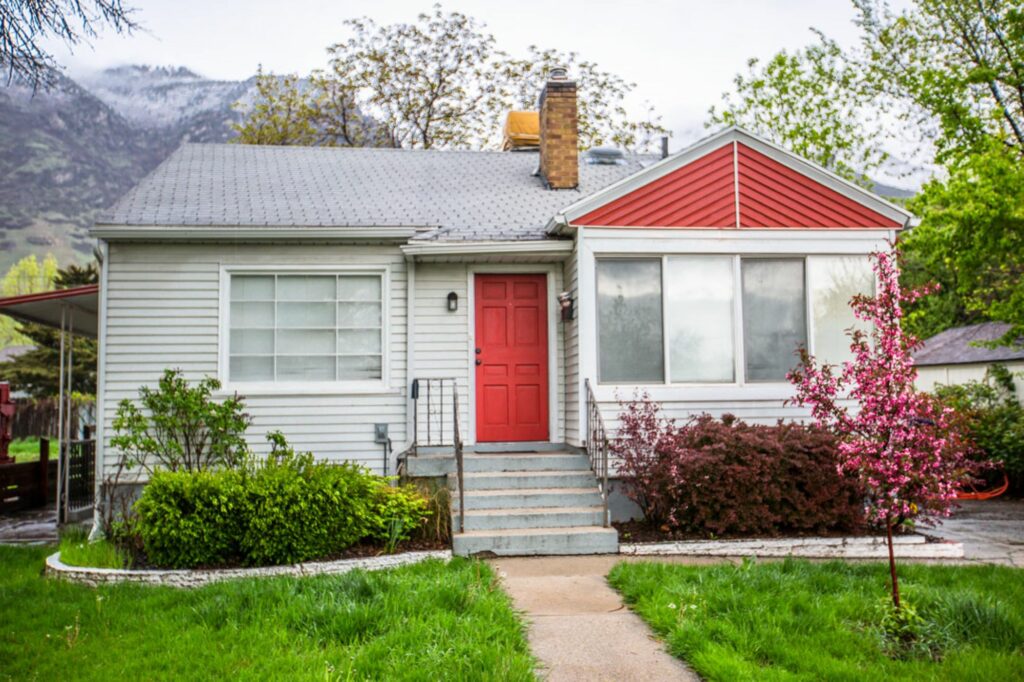Feeling like your personal growth is stagnating and that you’ve been the same person for too long? It may be time for a change. (After all, you can’t be a new person in the same place).
If you’re itching for a fresh start with new friends, a new job, and a new routine, it might be time for a spur-of-the-moment move (and a complete revamp of your personal life).
If getting out of your comfort zone and making friends out of strangers is something you crave, why not move to a new environment? Exploring a new housing market and immersing yourself in local community events could change your life for the better.
As much as you can help it, just try not to spontaneously move to a new city. While it can be thrilling to think about relocating on a whim, the more prepared you are for a move, the better the experience will be. Keep the details below in mind as you plan your upcoming move.
Before Moving to a New City: Tips

Look before you leap. Here’s what to consider before moving to a new city.
Tip #1: Analyze the Cost of Living
Before you move somewhere new, you’ll want to make sure you can afford to live there. The easiest way to understand the affordability of a new city is by checking out the area’s cost of living.
To view the cost of living of each U.S. state, visit the World Population Review’s Cost of Living Index Map. It contains an interactive display of the average cost of living in all 50 states. This is a great place to start, especially if you know which state you want to move to but aren’t sure which city to call home.
On the other hand, if you know exactly which city you want to move to, research using the Forbes Advisor Cost of Living Calculator. This tool makes it easy to determine how much money you’ll need to make in order to live comfortably in the new city.
Let’s say the new city you want to move to is estimated to cost about $10,000 more per year than your current city. In that case, a new job can make all the difference. Resources such as CareerBuilder’s list of average salaries can help you explore the local job market and make it possible for you to afford everyday life in the new city.
Tip #2: Research the Weather Conditions
Before you move to a new city, familiarize yourself with local weather conditions. By reviewing weather reports from the city’s news stations, you can use this information to better prepare for your move.
For instance, if you plan to move to Colorado at the end of February but learn that the area you’re relocating to is expecting a winter storm that week, you can adjust your timeline.
Tip #3: Establish a Budget
According to Forbes, local relocation costs approximately $2,100 and a long-distance move can be upwards of $5,500 or more. You can expect to pay movers on an hourly basis, with rates running between $25/hr and $125/hr on average.
To calculate moving costs based on the size of your home and the distance you need to travel, use a moving costs calculator. You can also join local Facebook groups and ask members how much they paid to move there.
Tip #4: Notify Your Landlord of Your Intent To Move
Refer to the conditions of your lease to understand how much advance notice your landlord requires. Some landlords require you to tell them you are moving to new city limits at least three months before you plan to do so, while others only ask for a one-month heads-up.
Tip #5: Contact Professional Moving Companies
If you plan to transport your belongings on your own, make sure you are stocked up on boxes, tape, fuel, and emergency supplies to make the process easier on yourself. Otherwise, you will need to contact professional moving truck companies to assist you with your relocation process.
When searching for a moving company, consider the following factors:
- Brand reputation
- Years of experience
- Available services
- Proper licensing
- Up-to-date insurance
- Price point
- Customer service
- Professionalism
- Flexibility
Check out service provider databases like Angi to compare quotes from moving companies in your area. The Spruce advises that you make arrangements with a moving company at least eight weeks before you plan to relocate.
Tips for During the Move

When creating a moving day checklist, keep the following tips in mind.
Tip #1: Follow a System
Have you looked at any packing checklists? This moving checklist by Real Simple and Neighbor’s Ultimate College Packing List are great places to start.
You can print out checklists like the one from Real Simple or use them as inspiration, but either way, develop a system that works for you. Whether that means methodically packing your rooms one by one, or starting the packing process a certain number of weeks in advance, establish a plan and carry it out.
Tip #2: Use Storage
Storage can also help you make moving to a new city a lot easier. With the right storage space, you can keep your belongings in a safe and secure rental unit until you are settled into your new home.
You can even continue to rent a storage unit after you have moved into your new place. For safe and local storage units in your new neighborhood, check out peer-to-peer marketplaces like Neighbor.
Tip #3: Sell or Donate Items You Don’t Want Anymore
As you prepare to move, consider getting rid of clutter. The Budget Dumpster is an amazing resource for learning what is worth keeping versus what you should throw away, sell, or donate.
Tip #4: Consult With Service Providers
Prices often differ between cities. For instance, the average price of gas in Tulsa, Oklahoma, is $2.76, but that same gallon of gas might cost you closer to $4.67 in Los Angeles, California.
The same is true for services, like electricity. The way electricity is calculated, and the total amount you’ll pay in electricity bills can vary drastically from one city to the next, even down to the frequency of payments.
You might pay $60 every two months for utilities in your current city, but meanwhile, in your new location, electric bills are due monthly at an average rate of $130. Instead of being shocked by surprise expenses, reach out to the service providers in new cities before relocating to them.
Tip #5: See If Local Medical Providers Accept Your Insurance
While you’re getting ready to relocate, check with your insurance provider to see if you will still be covered in your new city. Resources like Becker’s Payer Issues can help you research whether or not your insurance providers offer coverage there. If you discover that your coverage does not extend to the city you’re moving to, you may want to consider switching insurance providers.
Tips for After Moving to a New City

Once you arrive at your new place, there are a few things you can do to get situated.
Tip #1: Change Your Voter Registration Status
After you move, make sure you update your voter registration information. If you move from one state to another, you’ll need to register with your new state of residence.
If you still reside in the United States, this process is easier than it seems. All you need to do is visit the official U.S. voting website and click on the state you live in now.
From there, you will be redirected to information about how to update your voter registration information in that state. Just make sure you pay attention to deadlines to ensure that you update your information in a timely manner. For international moves, consult the U.S. Department of State on how to vote via absentee ballots.
Tip #2: Update Your Address
Make sure you update your address so the following service providers know where to reach you:
- Your bank of choice
- U.S. Postal Service
- Department of Motor Vehicles
- Social Security Administration
- Tax agencies
- Utility companies
- Homeowner’s insurance providers
- Employers
Visit the official USPS moving webpage to update your address online. You will receive a confirmation email once you have successfully registered your new address with the USPS.
Tip #3: Follow Pet Rules in Your New City
Did you know different cities and states have their own rules when it comes to owning pets? The Animal Legal and Historical Center can help you understand the laws regarding animal vaccinations by state.
Most states do not require pet owners to microchip their furry friends. However, if you want to ensure your pet’s well-being, microchipping is an excellent safety precaution to take. Pet stores, like Petco, or local veterinary clinics, are your best bet for professional microchipping services.
Tip #4: Sign Up For Classes and Memberships
Consider taking art classes, joining dance studios, and starting fitness memberships in your new city. Apps like ClassPass and Groupon can help you find health and wellness opportunities in your area. You can also type “gyms near me” into Google to pull up fitness locations in your city.
Tip #5: Take Time To Explore the Area
After moving to a new city, you might not have much downtime at first. However, when you feel up for it, familiarize yourself with the neighborhoods in your area, and wave hello to friendly people along the way. What looks unfamiliar now will soon feel like home.
In Summary
If you are planning to move to a new city — whether it’s with your family or on your own — it is important to plan your move ahead of time. Proactive planning is a great preventative against moving mishaps like damaged furniture, utility shut-offs, lost items, or added charges.
Be aware that when moving to a new city, your next place of residence or property might end up being smaller than your current one. If that’s the case, you will likely need to choose one of two options: either downsize your belongings or invest in a storage unit.
In theory, you could rent a larger property to accommodate everything you own, but that will likely cost you a lot more money than you’d want to spend on housing. Alternatively, check out your storage unit options for a simple solution when you live in a smaller space.
Self storage marketplaces like Neighbor can offer safe, nearby, and budget-friendly storage units in all 50 states. As a result, Neighbor makes it more simplistic than ever for you to find the right storage unit for your personal belongings wherever you need it most.







